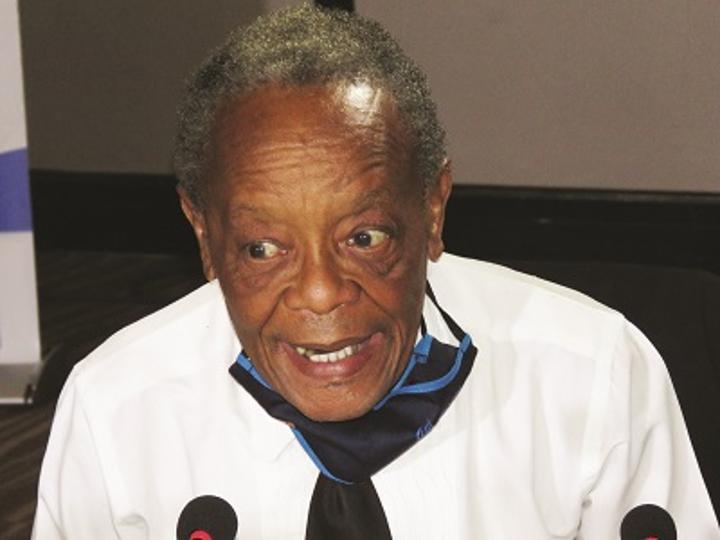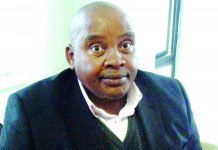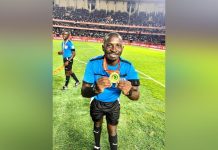Africa-Press – Lesotho. The recently retired Judge of the High Court Justice Semapo Peete had argued that many Basotho do not know their human rights. This he said in his speech at the commemoration of the International
Human Rights Day on December 10. The December 10 is an annual edition of the celebration of human rights. The United Nations (UN)’s General Assembly adopted the Universal
Declaration of Human Rights (UDHR) on the same date in 1948. Amongst other rights and freedoms which are contained in the UDHR are the right to freedom
from torture, the right to free speech, the right to education, the right to social security and health. Of the 30 articles of the UDHR, the article 30 reads thus: “no
government, group or individual should act in a way that would destroy the rights and freedoms of the [UDHR]”. Be that as it may, in Lesotho the human
rights had mostly been under attack. It is argued that the Police and the army are some of the biggest violators of the human rights. The two security institutions
normally come under fire from the disgruntled members of the public for excessive force they apply to civilians while maintaining law and order and protecting
the public property. This was also witnessed during the lockdown curfews which the government imposed after the breakout of the Covid-19 pandemic. The lockdown rules
meant that the movement was limited and sometimes monitored, a move which was said to have infringed on the people’s rights to movement. Those who were found
to have violated the lockdown restrictions were tortured by the members of these disciplined forces and some cases are still being litigated in the courts
of law. It has also came to the fore that many of the alleged cases of brutality especially by the Police are not prosecuted. This was also said by the Prime Minister (PM) Dr.
Moeketsi Majoro during the tabling of the ministerial report of the “instability” within the Lesotho Mounted Police Service (LMPS). The PM said of the 20 reported cases of Police brutality and human
rights abuse, only two have been prosecuted. Dr. Majoro said the rest had been between the Commissioner of Police (COMPOL)’s office and that of the Director
of the Public Prosecutions (DPP). In its recent article, the Amnesty International, an international movement that advocates for the promotion and enshrinement of human rights,
called upon the Southern African Development Community (SADC) member states to “strengthen laws” in order to address human rights threats. “From Angola to Lesotho to
Zimbabwe, people have been subjected to excessive force by the police for standing up for their rights to freedom of expression and peaceful assembly.
We have also seen the deep economic inequalities and social injustice that have been exposed by the Covid-19 pandemic. It’s time for SADC lawmakers to step up
interventions, strengthen laws and implement policies that ensure respect for people’s rights across the region,” reads the Amnesty International statement
in pertinent part. The retired Judge had argued that that most Basotho lack appreciation of their human rights. “Basotho do not know their human rights scope, and when,
how to enforce,” he said. To reverse this, Justice Peete advocated for the sensitization at the communities through media, village workshops and the legal
clinics as well as outreaches at schools to sensitise the students of their rights. He mentioned that the children, women, disadvantaged (visually impaired
persons, deaf and paralysed) are usually vulnerable groups. The Judge went on to say that the human right component be included in the police and military training.
He added that the judicial officers also need capacity building in human rights and humanitarian law. He made mention that the new constitution need to have
provisions which should empower the courts to issue directives. “Chapter II [of the Constitution] must be revisited to entrench the human rights and freedoms
and to render core socio-economic rights enforceable,” he said making an anecdote that the right to life and the right to livelihood are “inseparable”.
Justice Peete advanced the argument to the effect that the National University of Lesotho (NUL)’s faculty of law should offer intensive studies on human rights
to “produce the cadre of lawyers [who] specialise in human rights”. Lesotho is set to mount the Human Rights Commission (HRC), the body which when running will investigate human rights violations and abuses.
Through the support of the Office of the High Commissioner for Human Rights and the United Nations Development Programme (UNDP) there had been recent districts road
shows which were envisaged to sensitise many stakeholders of its inception and roles it will carry out. Judge Peete said when functional, HRC should espouse the Paris
principle as adopted in 1993. The Paris Principles stipulate the following requirements for the fully-fledged human rights body: autonomy from government,
independence, pluralism, be sufficiently resourced, competence and adequate powers to carry out investigations. “The HRC should enjoy the confidence of the
general public and of all state organs. It should understand the scope and the nature of human rights and that they are not absolute and may be alternated
when and [where] necessary,” he said. Also former DPP, Justice Peete admonished the government to refrain from “capturing or influencing” the HRC when discharging its functions.
He further said he aspires that the HRC display “fairness and equitability” especially when dealing with the cases of the poor and disadvantaged. Justice
Peete made a call that Lesotho should borrow the leaf from the books of countries who boast rich jurisprudence, citing South Africa as an example of such countries.
“Courts do not investigate violations of human rights, they adjudicate. It is the job of the HRC to investigate such violations and take appropriate actions. The acute quandary facing Lesotho is the paramount issue
of locus standi, section 22 of the Constitution is very restrictive and only the person whose rights are infringed can apply for redress,” he stated. On human rights violations he quipped thus: “the court adjudicate
over many cases involving police and military brutality. Courts have to decide such cases and award large awards where excessive force has been used. Culture
of brutality and gender [based] violence cannot be tolerated. In this regard the court must be brave and demonstrate in their judgements the gravity of the
offence, inhuman treatment or torture as unconstitutional. ” He said the office ought to be responsive where there are violations and abuses of human rights whether in the public service as well as within the
security agencies, adding that without human rights, democratic governance is “nullified”. “Immunity and impunity have bitter consequences,” he remarked.
Taking stock of the role of the courts, Judge Peete said the judicial oath requires “impartiality and accountability”. “Never be beholden to anyone except the King,” he advised.
The retired Judge also highlighted that the courts ought to appreciate the “nature, content of human rights and how they can be protected from violations”.
Justice Peete also made mention of the courts’ dynamism in their interpretation of the human rights, adding that they should be “bold and straightforward
but fair”. He said the courts need to write “clear and well-reasoned judgements”. “Courts cannot do it alone without other organs putting their shoulders to the wheel.
Collaboration, cooperation and mutual trust are ever so important,” he stressed. He also thanked His Majesty for his appointment to the bench. “It was good and it demanded lots of effort and sacrifice. Justice Peete had served as a Judge for 23 years and went for retirement earlier in July.
For More News And Analysis About Lesotho Follow Africa-Press






